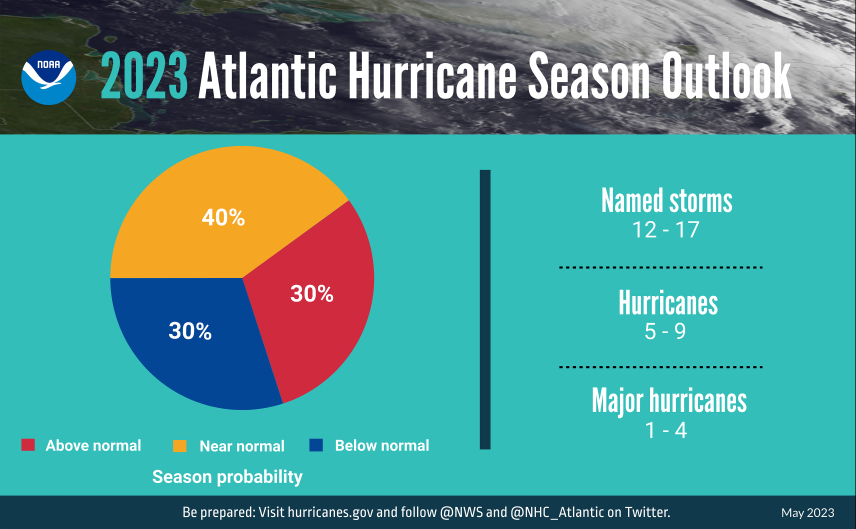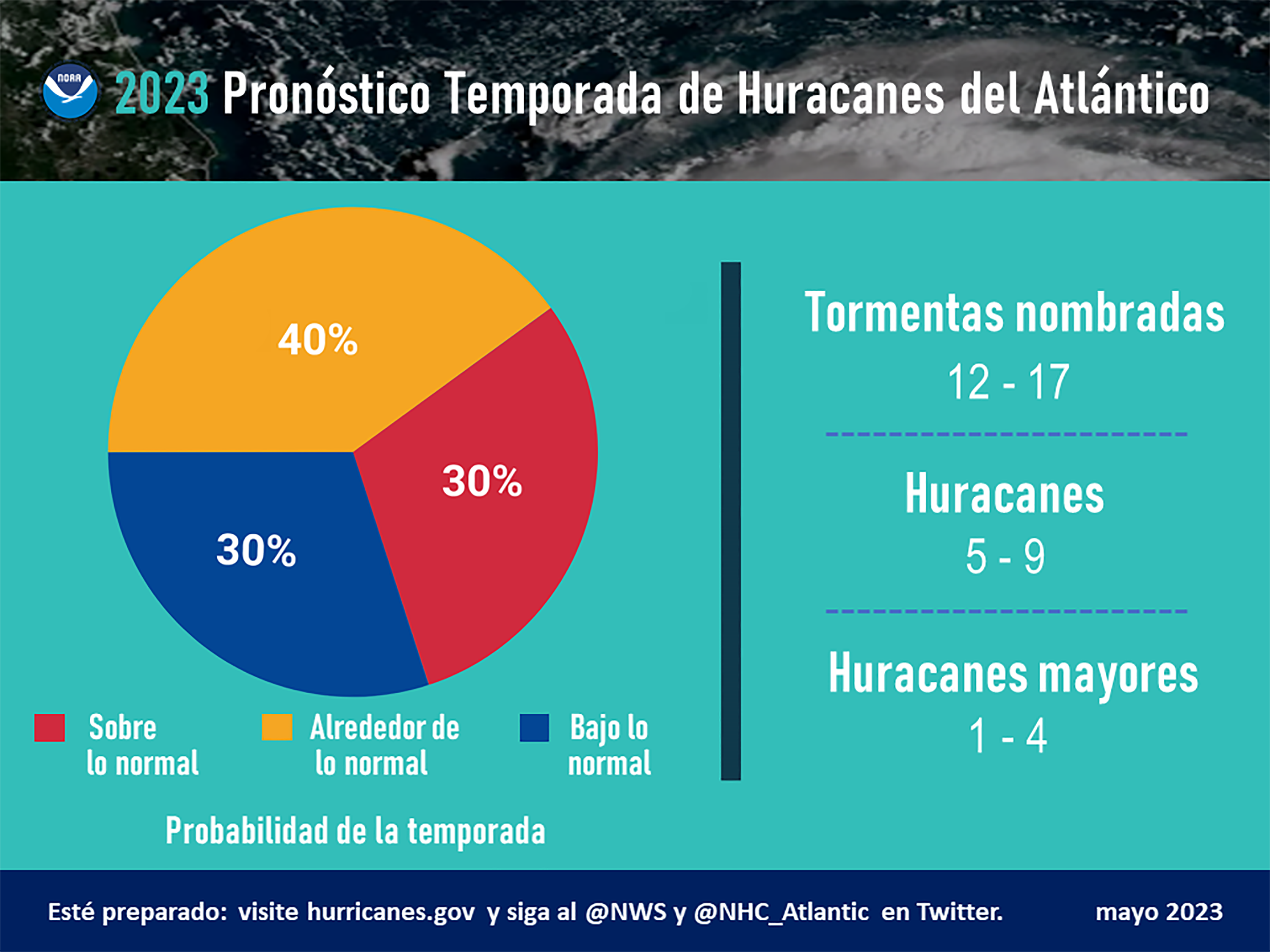Hurricane season is here.
This year, the National Oceanic and Atmospheric Administration (NOAA) is forecasting a near-normal hurricane season, following a 2022 season that could be categorized as an average season with major impact from three hurricanes --- Fiona, Ian, and Nicole.


In all, the 2022 season produced 14 named storms (winds of 39 mph or higher), eight hurricanes (winds of 74 mph or higher), and two intensified to major hurricanes (winds of 111 mph or higher).
Hurricane season runs from June 1 through November 30 each year. Now is the time to plan and prepare. Waiting until the last minute is never a good idea, and it's a particularly bad idea when a major storm is just hours away. Take the time now to review your emergency plan, make sure you are stocked with basic supplies, and get familiar with your local evacuation routes.
Your emergency plan should cover everything you need to do before, during, and after an emergency. The Alabama Department of Public Health (ADPH) Center for Emergency Preparedness (CEP) has created the Are You Ready? Emergency Preparedness Guide. This guide covers each phase of emergency preparedness in great detail, so feel free to download a copy to help you prepare. We'll cover some of the major points below.
One of the first things you can do to prepare for any type of emergency is to put together an emergency supply kit containing the following items:
For hurricanes, some specific things you can do to prepare include:
In the event that evacuation is required, consult the Alabama Department of Transportation's map of hurricane evacuation routes.
Visit Ready Alabama and ADPH's Get 10 Alabama for more preparedness tips.
If you are unable to evacuate and have to ride out a hurricane at home, you have to determine where you will be safest from high winds and flooding.
If possible, get to a designated storm shelter in your area; otherwise, go to an interior room.
Go to the highest level of your building if you are trapped by flooding. Do not climb into a closed attic, as rising water may trap you there.
Do not walk, swim, or drive through flood waters. It only takes 6 inches of moving water to knock a person down, and a foot of moving water is enough to sweep your vehicle away.
When the hurricane has passed, monitor your local officials for information on when it's safe to return. Phone systems will be down or busy, so use text messages or social media when possible to communicate with your family and friends.
The clean-up phase after a major storm can itself be dangerous. Wear protective clothing, use appropriate face coverings or masks when cleaning mold and debris, and avoid wading through flood water, which may contain pathogens, chemicals, waste, and other unpleasant substances.
Visit Ready.gov for more information on preparing for hurricanes and other disasters.
Visit ADPH Risk Communication for information on post-hurricane food safety, generator use, and more.